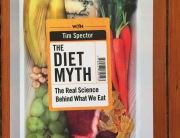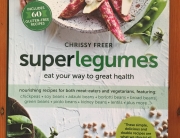 Are you a firm believer in the benefits of milk? Do you believe it is integral to healthy bones, and a healthy life? There have been campaigns promoting milk since the 1940s, so why wouldn’t you believe milk is necessary for a healthy diet. However, you may want to consider this – just because something is accepted as the norm, does not necessary mean it shouldn’t be questioned.
Are you a firm believer in the benefits of milk? Do you believe it is integral to healthy bones, and a healthy life? There have been campaigns promoting milk since the 1940s, so why wouldn’t you believe milk is necessary for a healthy diet. However, you may want to consider this – just because something is accepted as the norm, does not necessary mean it shouldn’t be questioned.
I am a firm believer that dairy is bad for us. I understand that this is still a controversial stance to take, so I wanted to share with you some peer reviewed studies that explores the possibility that dairy consumption could in fact be more harmful than good.
Healthy Bones
The high calcium found in dairy is its most noted nutritional ‘quality’. We know calcium to be important in maintaining healthy bones. Which is true, however, numerous clinical studies question our ability to absorb the calcium from milk, making the high levels of calcium irrelevant to humans. A study published in the Paediatrics journal in 2005 found that milk consumption does not improve the bone health of children, while another study published in the American Journal of Clinical Nutrition involving 72,000 women and conducted over 18 years found that milk had no protective effect on bone fracture risk.
On the other hand, adequate calcium intake from plant based foods such as leafy green vegetables and beans has been proven to decrease the risk of osteoporosis. Exercise is another way of maintaining healthy bones and reducing the risk of osteoporosis.
Cancer Risk
Dairy consumption has been linked to an increased risk of some cancers. Most notably it has been linked to breast, prostate and ovarian cancers. A Swedish study found that consumption of dairy products was positively linked to ovarian cancer, while another study published in the American Journal of Epidemiology found that women who consumed more than one glass of milk a day had a 73% higher chance of developing ovarian cancer than women who drank less than one glass per day.
Toxins
Milk has also been found to contain unwanted contaminates including pesticides and hormones that can be transferred from the cow to the consumer. These toxins build up in the body and can affect the healthy function of your body, from your immune and reproductive systems to the function of your kidneys.
On top of all that dairy consumption has also been linked to the development of diabetes in infants, colic in breast feeding babies when their mothers consume dairy, chronic constipation in children, and food allergies.
The good news is that these days there are so many dairy milk alternatives! From almond milk, to rice milk, to quinoa milk to hemp milk the choices are endless.
So, if after reading this you still believe dairy is good for you, I would encourage you to do your own peer reviewed research. After all, life is better lived with your eyes open!
References
http://www.pcrm.org/health/diets/vegdiets/health-concerns-about-dairy-products
http://milk.procon.org/view.timeline.php?timelineID=000018
http://www.ncbi.nlm.nih.gov/pubmed/12540414
http://pediatrics.aappublications.org/content/115/6/1792.1.extract
http://www.ncbi.nlm.nih.gov/pubmed/10197575
http://ajcn.nutrition.org/content/80/5/1353.full.pdf
http://aje.oxfordjournals.org/content/149/1/21.full.pdf
http://www.ncbi.nlm.nih.gov/pubmed/9498633
http://www.ncbi.nlm.nih.gov/pubmed/10518086


































































































































